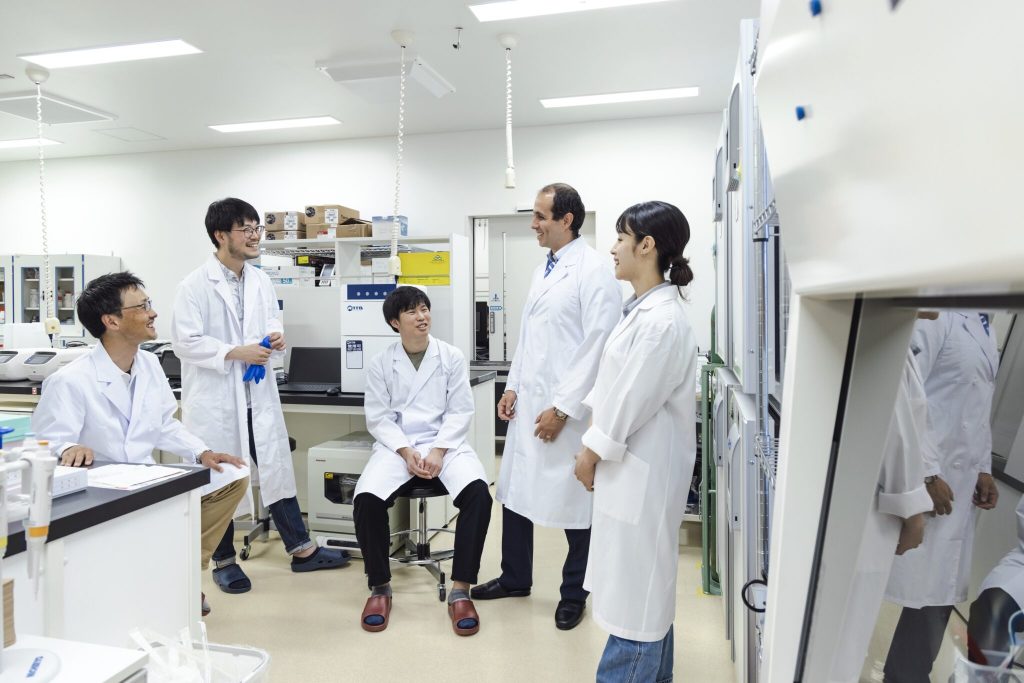This article was published in the Autumn 2023 issue of Litterae Populi. The full issue can be found here.
The Institute for Vaccine Research and Development (IVReD) was established as a new hub specializing in vaccine research and development to develop a preemptive strategy against zoonotic diseases. The aim is to perform prompt vaccine development and its social implementation from basic scientific research results originating from Hokkaido University.
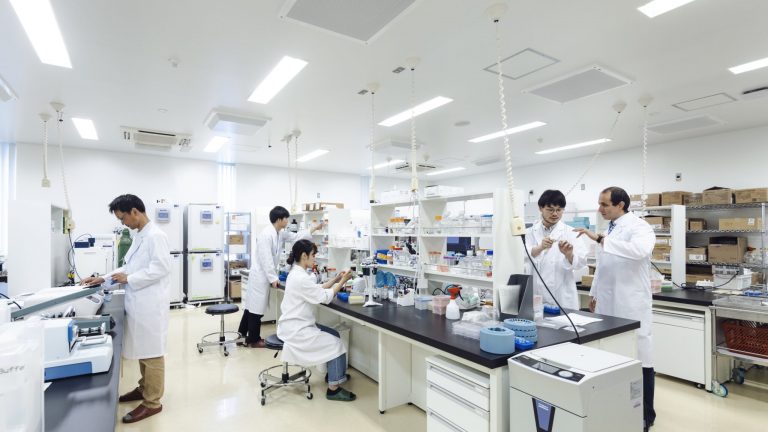
National project for domestic development of vaccines
The novel coronavirus infection (COVID-19) has spread dramatically since its early recognition as a global pandemic in 2020; furthermore, cumulative cases have exceeded 670 million worldwide by 2023.
In April 2022, the Ministry of Education, Culture, Sports, Science and Technology and the Japan Agency for Medical Research and Development (AMED) launched a project to establish research centers —including a flagship center, synergy centers, and support centers— for the promotion of domestic development of vaccines for the infectious disease under the “Japan Initiative for World-leading Vaccine Research and Development Centers”.
The University of Tokyo was selected as the flagship center, which takes a leading role, while the four universities of Hokkaido University, Chiba University, Osaka University, and Nagasaki University were selected as the synergy centers. Hokkaido University consequently established the Institute for Vaccine Research and Development (IVReD) within the Creative Research Institution at the northern part of the Hokkaido University Sapporo Campus in October 2022.
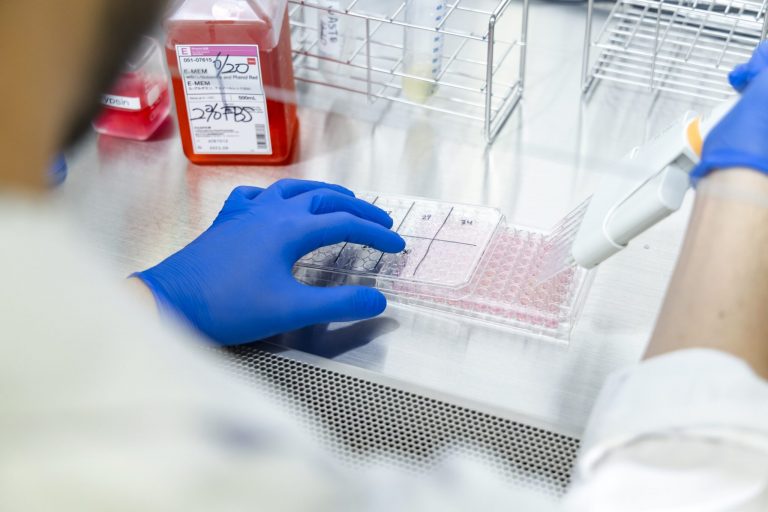
Vast knowledge of zoonotic diseases
The director of IVReD is Professor Hirofumi Sawa (Distinguished Professor). He has been engaged in research to overcome zoonotic diseases for many years, and also has served as a professor at the Hokkaido University Research Center for Zoonosis Control (now, International Institute for Zoonosis Control) since 2005. Professor Sawa explained the establishment of IVReD as follows.
“Hokkaido University International Institute for Zoonosis Control has been involved in the elucidation of pathogen propagation routes, analysis of the pathogenesis mechanism of pathogens, and development of preventive, diagnostic, and therapeutical methods as the three pillars of basic research. These achievements must have been highly evaluated as strengths of Hokkaido University to be selected as a synergy center.”
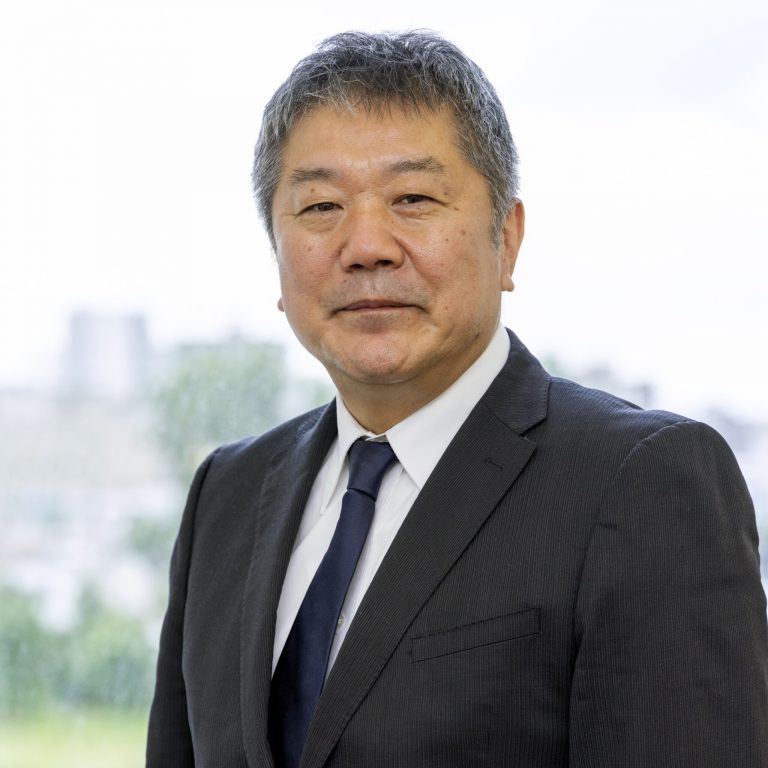
“Since its establishment, the Institute has created libraries of viruses, bacteria, and other pathogens that may cause human infection and promoted basic research on vaccine development ahead of others. In addition, collaboration research with Shionogi & Co., Ltd., which led to the development of Xocova®, Japan’s first domestically produced COVID drug, is still fresh in our memory.”
Based on these activities, IVReD was adopted as one of the world-leading vaccine and research and development centers.
Preemptive strategy to prevent pandemics
The organizational structure of IVReD consists of four divisions—the Division of Vaccine Development, Division of Biological Response Analysis, Division of Vaccinology for Clinical Development, and Division of Research Support—under a Director and two Deputy Directors. IVReD is focusing vaccine research and development targeting zoonoses, mainly influenza, coronavirus disease, and tuberculosis. Its goal is a preemptive strategy to prepare preventive, diagnostic, and therapeutic methods before the occurrence of a pandemic.
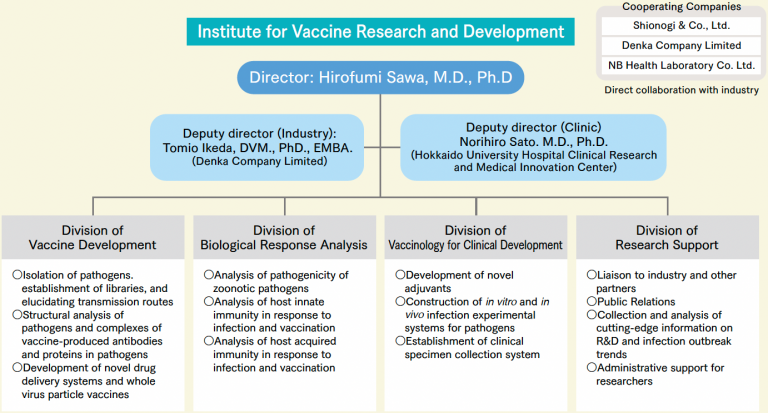
All-Hokkaido University R&D system
IVReD consists of multiple institutes and departments of Hokkaido University, such as Hokkaido University Hospital, which is located on the same campus, as well as the International Institute for Zoonosis Control, Faculty of Medicine, Faculty of Pharmaceutical Sciences, Faculty of Veterinary Medicine, and Institute for Genetic Medicine, among other departments. “When a vaccine is in the stage of social implementation, it is necessary to provide information to the public and to predict and verify the vaccine’s economic effect, which requires the involvement of researchers in the fields of humanities and social sciences of the University. This can further demonstrate the potential of the All-Hokkaido University system,” says Professor Sawa.
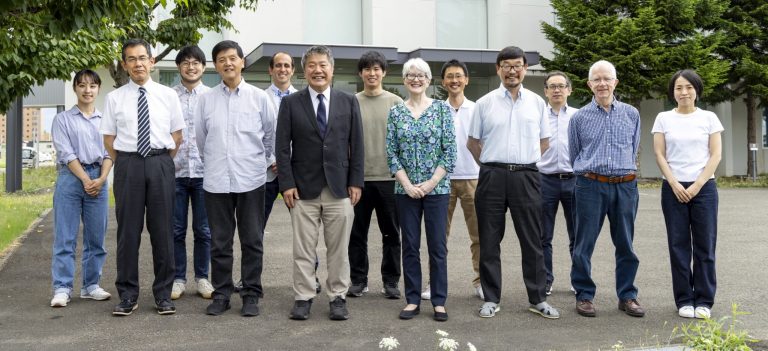
Professor Yasuhiko Suzuki (Distinguished Professor) of the International Institute for Zoonosis Control, who is the Head of the Research Support Division, serves as the contact person in charge of coordination and information exchanges with the flagship center (The University of Tokyo) and other synergy centers under the management of the Strategic Center of Biomedical Advanced Vaccine Research and Development for Preparedness and Response (SCARDA) of AMED.
Professor Suzuki says, “Research subjects promoted by individual researchers will be monitored in detail in addition to the progress of the project as a whole, so that adjustments can be made as necessary to ensure smooth research activities. Reaching out to society to show the content of research performed at the Institute is also an important goal.”
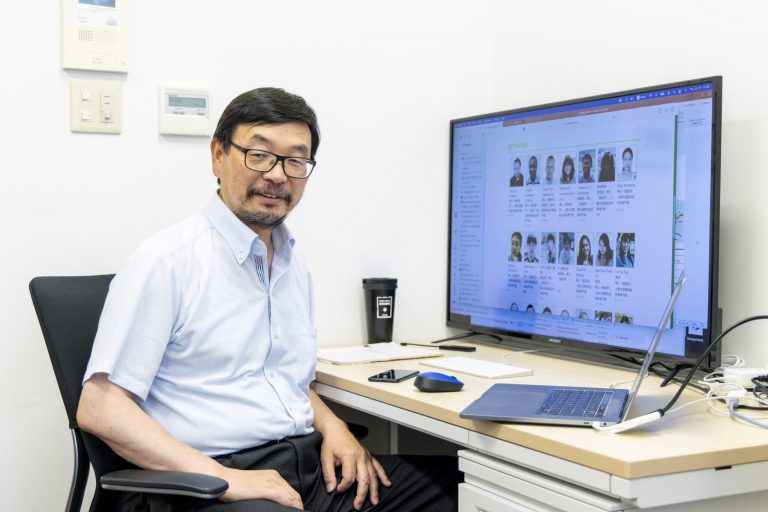
Cooperation systems have also been established with outside parties, including Shionogi & Co., Ltd., Denka Company Limited, NBHL Co., Ltd., and other companies. In terms of international cooperation, information concerning infections and R&D trends will be collected both in and outside Japan and available information will be shared with other centers through integration with international research/education networks established by the University’s Global Institution for Collaborative Research and Education (GI-CoRE). Professor Suzuki expressed his enthusiasm saying, “We wish to provide steady logistic support for the social implementation of the basic research results of the International Institute for Zoonosis Control. We can proceed even faster than before.”
Expectations for young researchers
There are many young researchers working at IVReD. Members with diverse backgrounds—specializing in immunity, clinical application, information science, and other fields—all work in the same laboratory.
Specially Appointed Associate Professor Kensuke Takada of the Division of Vaccinology for Clinical Development says, “There is an atmosphere where researchers with different specialties help each other toward a single goal. I expect innovation to be created where diverse fields interact with each other.”
Specially Appointed Assistant Professor Koshiro Tabata of the Division of Biological Response Analysis, who specializes in pharmaceuticals science, says, “Since the role of manufacturers that commercialize vaccines and send them out to society is essential, I also think it is important to have the insight to convince them about the developed product.”
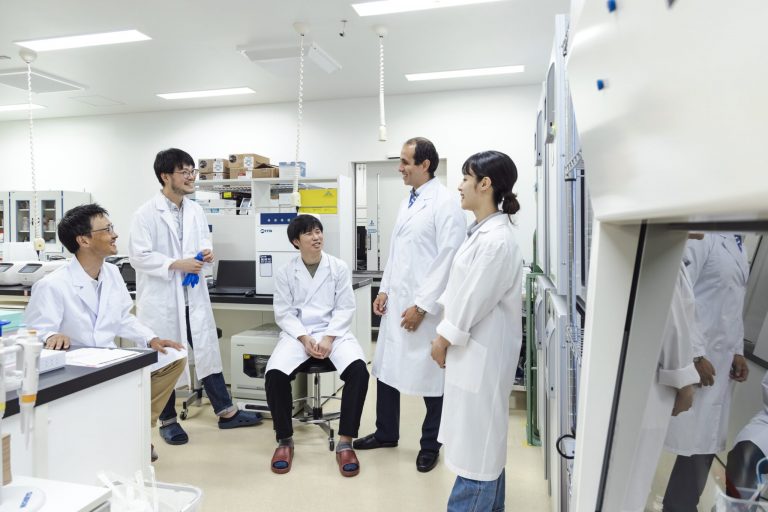
Specially Appointed Assistant Professor Hiroto Takeuchi of the Division of Vaccinology for Clinical Development said that he joined IVReD because he wanted to see his research results applied to clinical practice. A strong awareness of “outlets” for the results of basic research on preventive and therapeutic applications in addition to the research itself is a mindset shared by young researchers who gather here.
Specially Appointed Associate Professor Gabriel Gonzalez of the Division of Research Support is in charge of the information science fields, including data processing/analysis and simulations. “To demonstrate the efficacy of the developed vaccines it is also important that we clearly show the data analysis and development rationale to the community.”
Professor Sawa also remarked, “It is very significant that young researchers, such as alumni of the Graduate School of Infectious Diseases and the Graduate School of Veterinary Medicine, become interested and participate in our activities under our university’s One Health Frontier Graduate School of Excellence program.” IVReD will perform vaccine research and development involving many young researchers.
Environment filled with a vaccine development spirit
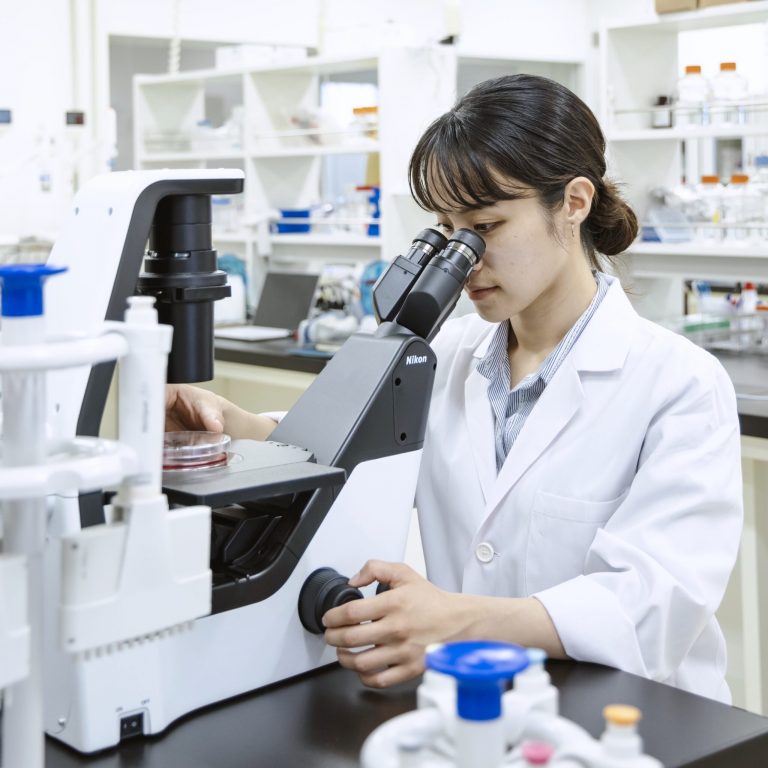
Institute for Vaccine Research and Development (IVReD), Hokkaido University
Specially Appointed Assistant Professor Yukari Itakura of the Division of Biological Response Analysis is working on oral rabies vaccine development with a view of environmental dispersion. Rabies, which is a zoonotic disease, is preventable, but there are no effective therapeutics against it, and it is almost impossible to escape death once rabies symptoms appear. In the field of veterinary medicine, vaccine research is aimed to control the disease on the animal side.
“In western countries, wild animals may be given oral vaccines using attenuated viruses, which have been proven to be efficacious. However, in India and other countries where many stray dogs share living environments with humans, there is a risk that humans may consume vaccine-mixed food if it is placed outdoors or spread through air. The subject of my research is the development of a safe oral vaccine for dogs that can be spread in environments where people and animals coexist.”
Dr. Itakura, who belonged to the laboratory of Professor Sawa when she was a student, joined IVReD because it gave her meaning to give back her research results to society. “I think members of IVReD are highly motivated to create vaccines with their own hands. I can feel the high level of commitment among them. Apart from being able to receive guidance from the world’s top-class researchers, it is also a precious experience to conduct research together with members of other universities and companies. I hope to help many people by working on the development of vaccines and therapeutics in this favorable environment.”
This article was published in the Spring 2023 issue of Litterae Populi. The full issue can be found here.


